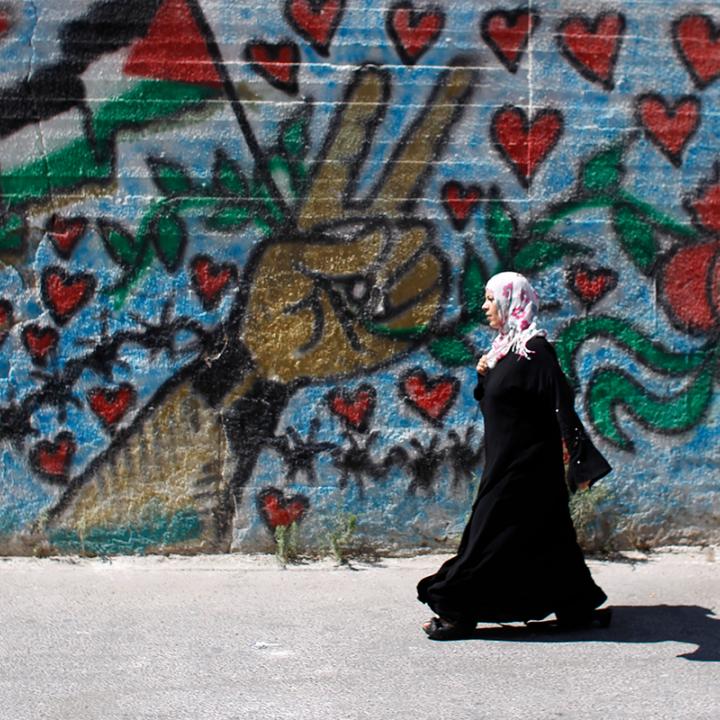
- Policy Analysis
- Articles & Op-Eds
Peace With Saudi Arabia Is Transformative But Requires Choices
Also published in Jerusalem Post

Riyadh understands that immediate Palestinian statehood is not an option, but it still needs Israel to take steps that demonstrably improve daily life in the West Bank and curtail settlement growth.
There is much speculation about the Biden Administration’s brokering of Saudi-Israeli normalization, and for good reason. President Biden has made it clear he would like to achieve this. Prime Minister Benjamin Netanyahu speaks of his hopes for it. And Saudi Crown Prince Mohammad bin Salman has publicly said that it is getting closer.
Make no mistake, Saudi normalization with Israel would represent a geopolitical transformation in the Middle East and beyond, especially because of what the Saudis and Americans would be committing to each other—commitments that would bind Saudi security to our own, while also setting boundaries to the Saudi-Chinese relationship. The Saudi-Chinese commercial relationship will remain significant, but would be limited where it crosses into sensitive security areas—not surprising in the context of the security relationship that the Saudis want formalized with the United States.
For Israel, normalization with Saudi Arabia has enormous implications for normalizing Israel’s relationship with Muslim majority countries in the region and internationally. After all, the Custodian of the Two Holy Mosques would be making peace with Israel. For especially Sunni Muslims, who make up close to 85% of all Muslims, the putative leader of Sunni Muslims would be reconciling with Israel, the state of the Jewish people. It is hard to exaggerate the meaning of that in terms of greatly reducing the religious nature of the historic conflict between Arabs and Jews. It is also hard to exaggerate the significance of such a breakthrough for what it is likely to do for building coalitions between those countries in the region who are seeking to build modern, resilient societies. Their prospects for dealing with climate change, pandemics, and disruptive technologies will improve—unlike those failed or failing states who won’t be able to cope with increasing food, water, and health security challenges and will offer their publics only hopelessness because “resistance” remains their raison d’etre.
So such a breakthrough is likely to be enormously significant. Of course, it will not simply happen.
It is being brokered by the Biden Administration, and its bilateral parts—defense treaty, access to weapons and nuclear partnership—do have implications for Israel and need to be part of the US-Israel bilateral discussion. But the Saudis do have one other condition for normalizing: there have to be steps taken for the Palestinians. From the Saudi perspective, they want to show when they do this deal, others like Indonesia and Malaysia will follow their lead. For that to happen, the Saudis believe that they cannot settle only for preventing a negative (e.g. no Israeli annexation) like the UAE. Instead, they must be able to point to achieving something positive and meaningful for the Palestinians.
A measure of the Saudi seriousness in this regard is that they are focused on practicalities, not impossibilities. They are not pressing for a state now, recognizing that there are two different leaderships in the West Bank and Gaza and understanding a Palestinian state now would be a failed state. They are not talking about the dimensions or attributes of a future Palestinian state, understanding those must be negotiated and such negotiations at this time are not possible.
But they do have two requirements: first, life gets better for Palestinians in a demonstrable way so that they see something is clearly different after this deal than it is before. Second, there are tangible moves on the ground that preserve two states as an outcome. They don’t want to do a deal that cements a one state reality and outcome. (I say outcome and not solution because one state will perpetuate endless conflict. The Palestinian national identity is not simply going to disappear in one state.)
What does this mean in practical terms? It means Palestinian economic life and movement improve. (That will require more economic access to area “C,” investment in water and road infrastructure, and the kind of contiguity that will make it possible for Palestinians to travel more directly between different points in the West Bank, so what should be a 10 minute drive no longer takes 45 minutes.) As for tangible moves that preserve the possibility of two states, that will require some combination of settlements not expanding territorially so land is left for a Palestinian state and some increased territorial responsibility for the Palestinian Authority as a way of enhancing the basis for two states over time. (For the latter, any such transfer of territory would require the PA performing their security responsibilities—something I suspect the Saudis understand.)
Putting all the pieces together may be a bit like dealing with a Rubik’s cube, to include what the Saudis will ask on the Palestinians. Significantly, they are not focused on slogans or mythologies but practical steps. Yes, those steps will stress Israel’s government, but what can be achieved is historic in its implications for Israel (and the US). Leadership requires recognizing historic moments and having the courage and wisdom to take advantage of them.
Dennis Ross is the counselor and William Davidson Distinguished Fellow at The Washington Institute. This article was originally published on the Jerusalem Post website.



